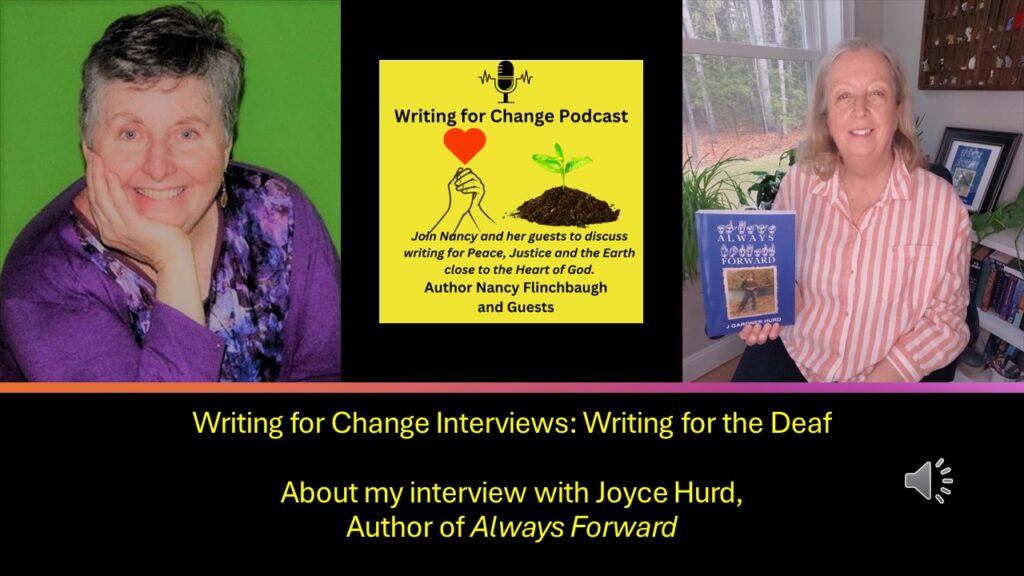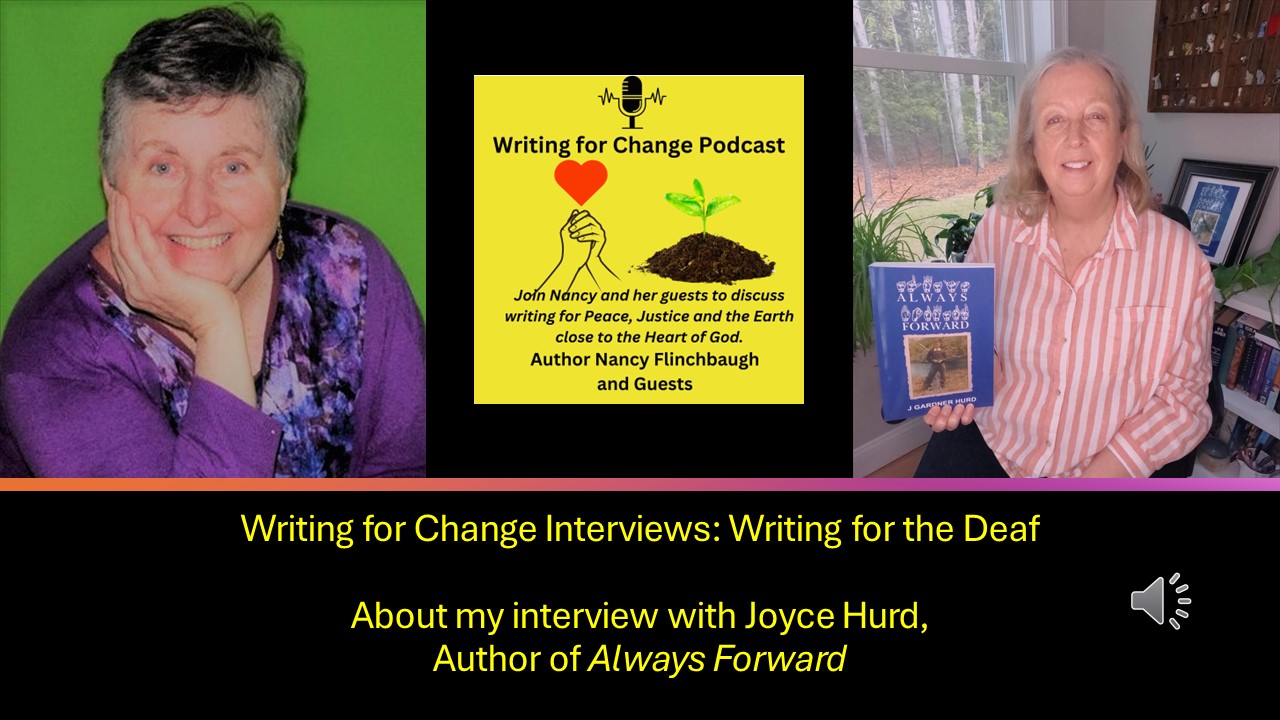
Recently, I interviewed Joyce Gardner Hurd, an author of fiction, essays and short stories. Originally from Massachusetts, Joyce now lives on the seacoast in New Hampshire with her Maine Coon cat, Kiki. She enjoys traveling, reading, gardening, cooking, seeing friends. Growing up as a child of deaf parents gives her insight into the worlds of silence, physical disabilities, and the stereotypes they faced.
After retiring from her career as an advertising executive in the Boston area, Joyce decided to return to college to fulfill an earlier dream of becoming a writer. She completed a degree in creative writing. Her debut novel, Always Forward, was published by All Things That Matter Press in 2023. She also has published essays in the 2020 Spring issue of the SNHU Penman as well as in the 2020 Boston Book Festival. She enjoys writing both essays of current events and personal reflections as well as longer form fiction.
As the child of deaf adults (CODA), Joyce was motivated to write her first novel. She told me, “My parents were pretty remarkable. I think that deafness is very misunderstood, by people who don’t know anybody that’s deaf. My motivation was to write about my parents, mostly my dad.”
She explained to me that there are ranges of deafness and that you can’t define people just by their deafness, because deaf people are such a diverse group of individuals. She laments that often the label of being deaf is very limiting and unfair. Joyce knows that deaf people are amazing people, with their own culture and their own language. She wanted to explore this in her writing.
While the main character, Alex, was based on her dad, she cautions that his fictitious wife was not her mother. She had to warn her brother that ahead of publishing the work. When you read the novel, you’ll understand.
Many of the challenges her dad faced on a day-to-day basis included being dismissed out of hand because he was deaf. Another problem he faced was not being able to enter the military, which still happens today.
She also depicted Alex’s mother similar to her real-life paternal grandmother. Some book reviewers complained that this character wasn’t well-rounded enough and appeared too saintly. Joyce explained to me that was her grandmother’s true personality.
One of her goals in writing was to demonstrate what a deaf man could do, even in the 1940s and 1950s when there was much less awareness of deafness and much more discrimination.
I asked Joyce what change she wanted to see come from her writing. She told me that she hopes those who read the book will learn to be more open-minded about deaf people and realize that one size doesn’t fit all. Her own dad had a long career as a printer, which was a great occupation for deaf men at that time. They entered that profession because all that noise didn’t really bother them. He had a house, a family, a career, and friends. She also wants people who are deaf to see that about themselves. She wants them to know that they are seen, that they are heard, that they have a voice and that they can be represented in art.
I thought Joyce did a great job showing the intelligence of her main character, Alex. He was very capable of learning complicated mathematical theories, although people often assumed he was incapable because he was deaf. After reading this book myself, I do believe the next time I see some people signing in public, I’ll remember Alex, and think to myself, “I bet that person is very intelligent,” as I remember Alex.
Joyce also cautions that sometimes people with disabilities are put on a pedestal, assuming they have no faults. This is sometimes called the saintliness of a disability. She explained, “I wanted to show that just because you have a handicap, that does not mean that you’re always perfect or a good person. Deaf people are three-dimensional.”
Her father, born in 1927, used to tell them as he shared family stories that many children who were deaf in that period were institutionalized, such as his good friend’s sister. Her dad observed that as they got older, his friend had a difficult time trying to absorb the contrast between his sister’s life vs. Joyce’s father, who lived a very full life. She said that was very sad.
I recommend that you read Joyce’s book, Always Forward. It’s a great book and a riveting story, gently written and I really enjoyed it.
Look for Joyce’s next novel, a coming-of-age story of a young woman in the seventies in the New England. The story takes place in America and Nova Scotia, the places of Joyce’s family. The woman is not deaf but faces other challenges.
Follow Joyce on Facebook a J. Gardner Hurd and check out her website at jgardnerhurd.com. Always Forward is available on Amazon and Barnes and Noble.
Listen to the interview on Spotify, YouTube, Amazon Music, or iTunes.

